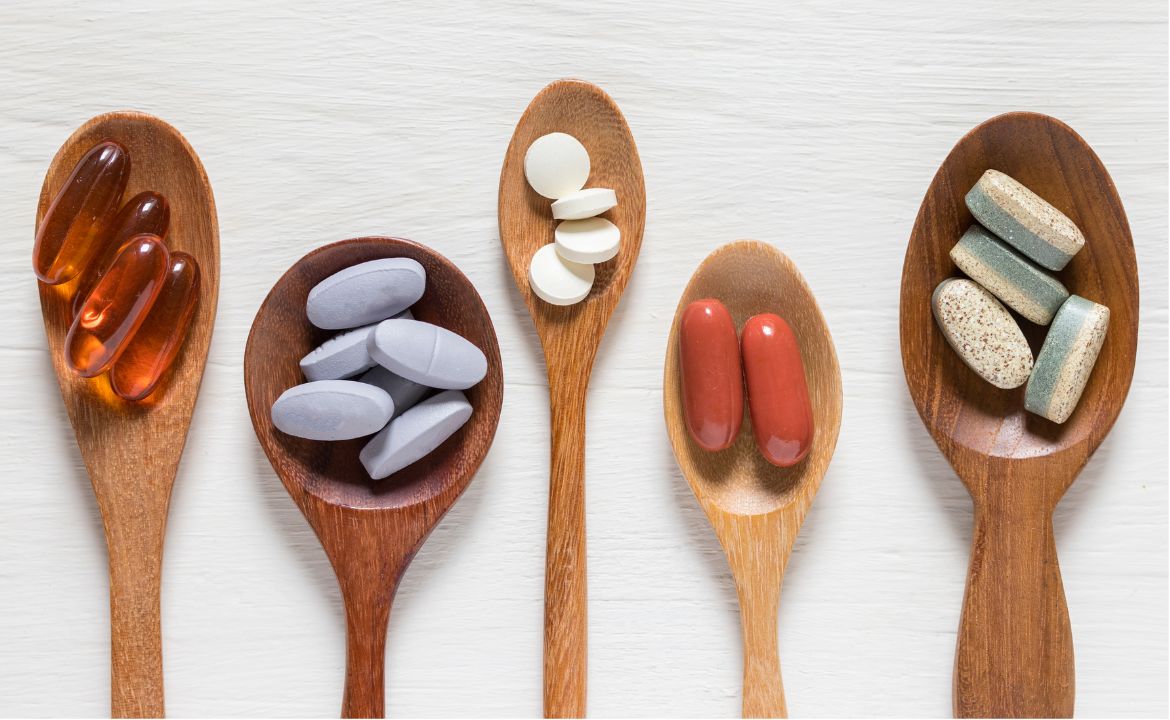AuthorDr. Carrie McMillin is a naturopathic physician that specializes in treating adults and children with ADHD and anxiety. Archives
February 2023
Categories
All
|
Back to Blog
As a naturopathic physician specializing in ADHD, I understand the importance of optimizing foundational health and wellbeing to manage ADHD symptoms. And one area that is essential to evaluate is vitamin and mineral deficiencies.
Research has shown that certain deficiencies are actually more common in people with ADHD, and understanding how these vitamins and minerals affect the body can help you determine which ones could potentially have the biggest impact on your health and ADHD symptoms. Generally, when I work with patients, I like to check-in on the following 5 potential deficiencies, particularly if there are additional health conditions, poor diet, or possible absorption issues in the gut. Remember to talk to your doctor before taking any new supplements! Magnesium Magnesium levels can impact sleep, muscle and nerve function, bone health, and your ability to manage stress and anxiety. Most people who eat a standard American diet are deficient in magnesium, although people with ADHD have even higher rates of magnesium deficiency. I often consider magnesium supplementation for patients who struggle with sleep issues, muscle cramps, constipation, headaches, and/or anxiety. Magnesium supplements exist in many forms–oxide, citrate, threonate, glycinate, and more– and not all forms of magnesium are created equal in how readily they are absorbed. Plus, research seems to point to some forms of magnesium being more suited to specific effects. For example, magnesium glycinate may be more well suited for neurologic benefits of magnesium. Vitamin D Essential for calcium absorption, immune function and countless other processes, vitamin D also appears to be linked to levels of neurotransmitters like serotonin and dopamine which are super important for ADHD and mental health overall! In my experience, most of my patients are deficient in vitamin D, even if they have been taking a standard maintenance supplement. I like to see levels at 50-75 nmol/L on bloodwork, and it is crucial to look at labs for Vitamin D because this is one of those vitamins that can be harmful if you take too much. Vitamin D is an easy supplement to take and since it can be linked to fatigue and depression, it is part of most of my treatment plans. It is particularly important for people who have IBD or other inflammation in the gut which can make it hard to absorb vitamin D in the diet. Iron Iron is another supplement that you definitely want to avoid overdoing, so getting bloodwork to determine your actual values is important. Iron levels can impact energy levels, exercise tolerance, growth, and how well your nervous system functions. Iron deficiency is also correlated with tic disorders and sleep struggles. Knowing its actions in the body, I always pay close attention to iron levels for my patients who struggle with sleep or those who experience tics. I also think about iron if a patient has heavy periods or eats very limited meat in their diet. Luckily, lab work gives us really great information about whether or not a person’s iron levels are getting low, as long as you are sure to get a ferritin level with your workup. Ferritin can help us understand how much iron your body has in “backup stores”, and this often drops low even before true anemia shows up. B vitamins I could write pages and pages about the link between the different B vitamins and ADHD, but in short, we definitely see higher rates of deficiencies in several of the B vitamins in ADHD patients. B6 may be particularly important when fatigue and irritability are major struggles. Folate (B9) can be affected by mutations in the MTHFR gene which make it more difficult for your body to convert folate from your diet into a form that the body can use. Some researchers have proposed that excess hyperactivity and impulsivity in some people with ADHD may be able to be explained by inadequate B12 levels. As with many of the other nutrients, inflammation in the gut can make it harder for the body to absorb B vitamins. Diet also plays a major role in B vitamin levels. For example, B12 is only available from animal sources or in fortified foods, so strict vegans need to make an effort to add this nutrient into their diet. The take home message? Your B vitamin levels can be having a major effect on ADHD symptoms and on your general energy and health. This is an easy problem to correct, but knowing whether or not you have any mutations or absorption issues that are playing a role is crucial. Zinc Zinc plays an important role in the nervous system, as well as the immune system and growth. It also affects your sense of taste and smell, and appetite. For some patients that find they really struggle with appetite, zinc supplementation can help. I also think about zinc for patients who seem to get frequent respiratory infections and for patients with hair loss or poor hair growth. You need to be careful with taking zinc, because the ratio of zinc to copper in the body is very important. If you take a zinc supplement, you may also need to add copper in the right amount in order to keep the correct balance. ********* If you would like to check if a vitamin or mineral deficiency could be contributing to your symptoms, it is important to always talk to your healthcare provider. They can help determine what supplements and doses are best for your specific situation. In health, Dr. McMillin |
 RSS Feed
RSS Feed
